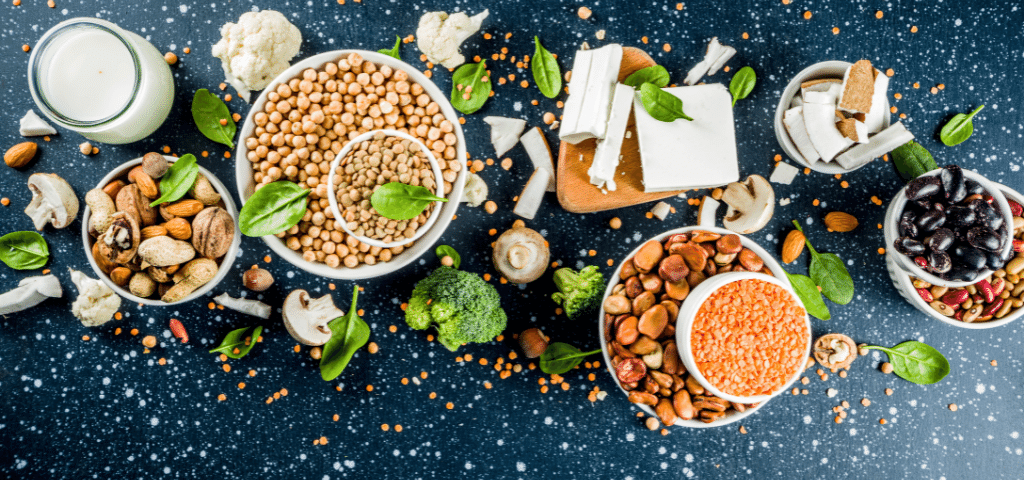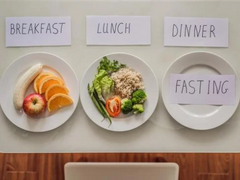How to find complete vegan protein sources

What is protein?
Protein plays a key role in maintaining good health, helping to build bones, muscles, cartilage and skin, whilst helping to repair your body and control hormones. Therefore, if you engage in regular exercise your body will need a good supply of protein in order to recover and build lean muscle tissue.
Protein is made from 20 different elements - amino acids - 11 of which are made by our bodies. The other 9 amino acids need to be derived from the food and liquids we consume.
'Complete protein sources' contain all of the nine essential amino acids that are required to build and repair protein tissues in the body. However, while a lot of animal-based foods (such as eggs, fish, meat and dairy) are 'complete proteins',the number of vegan complete protein sources are in shorter supply. This means that, when eating a plant-based diet, you should find ‘complementary proteins’ which work together to give you all nine of the essential amino acids.
Which amino acids make up complete proteins?
The nine essential amino acids are:
Vegan sources of protein
The most common, and often the healthiest, sources of vegan protein are:
Legumes
These include lentils, peas, beans, edamame, soybeans, chickpeas and peanuts.
Whole grains
These include rice, quinoa, wheat and buckwheat.
Seeds and nuts
These include walnuts, cashews, almonds, sunflower seeds, chia seeds and flex seeds.
Fruits and vegetables
Including brussels sprouts, broccoli, corn, mushrooms and asparagus.
Mycoprotein (Quorn)
As some Quorn products contain milk it's advisable to check the ingredients to ensure your chosen product is 100% plant-based.
Plant-based foods missing amino acids
There are, however, many vegan food sources that lack some of the key essemtial amino acids.
Missing Methionine
In terms of plant based foods which are missing only methionine, you should focus on eating beans, lentils, peanuts, chickpeas and peas. These are versatile foods, and lentils and chickpeas are great to add to a curry for extra protein, flavour and texture. Also, peanuts are a great snack for busy people, giving you a quick high protein snack whenever you’re hungry – however, they are pretty high in fat, so if you are trying to eat a low fat diet it may be best to avoid peanuts.
Missing Lysine
Vegan protein sources which are only missing or low in lysine include walnuts, cashews, sesame seeds, sunflower seeds and pumpkin seeds. However, this is one of the easiest ways to increase your (almost) vegan complete protein levels, as seeds and nuts are easy to eat as a snack, or throw into meals. Sesame seeds, for example, are great to add into a stir fry – giving extra texture, flavour and nutritional value. Seeds are also high in fibre, vitamin E and monounsaturated fats, which help to keep our heart healthy; moreover, they are a good source of minerals and zinc.
Missing threonine
There are also protein sources which are missing threonine. These include oats, rice, pasta, rye, wheat and corn. Oats, rice and pasta are a great examples of slow-release carbs, which are digested and absorbed more slowly than carbs with a high glycemic index – this prevents hunger for a while and helps to control blood sugar. Oats are a good pre-workout food, and by consuming oats 2 hours before you work out you can satisfy hunger and give your body the necessary energy it needs.
Vegan complete protein sources
There are a a few plant-based complete protein sources which you can easily add into your diet. These include:
Chia seeds
Chia seeds seem to be the perfect food no matter what your goal. Just one ounce of chia seeds contain 42% of your recommended daily amount of fibre, 18% of your recommended daily amount of calcium, plenty of tryptophan (which raises melatonin and serotonin – supporting stable sleep), and more omega-3 fatty acids than flax seeds, which reduces your risk of developing heart disease.
Soy
Soy is a complete protein source, and with its status as the go-to meat substitute there are plenty of easy ways to add it into your diet. Soy is also a super versatile food, and you can consume it as tofu, soybeans (which can also be found in many forms – fresh, dried, canned or roasted), soy milk, and tempeh.
Vegan protein powder
Our plant-bassed protein powder contains pea, rice and hemp sources of protein, which combined provide all 9 essential amino acids. Plus they are available in 4 delicious flavours - vanilla, raspberry, chocolate and chocolate salted caramel.












